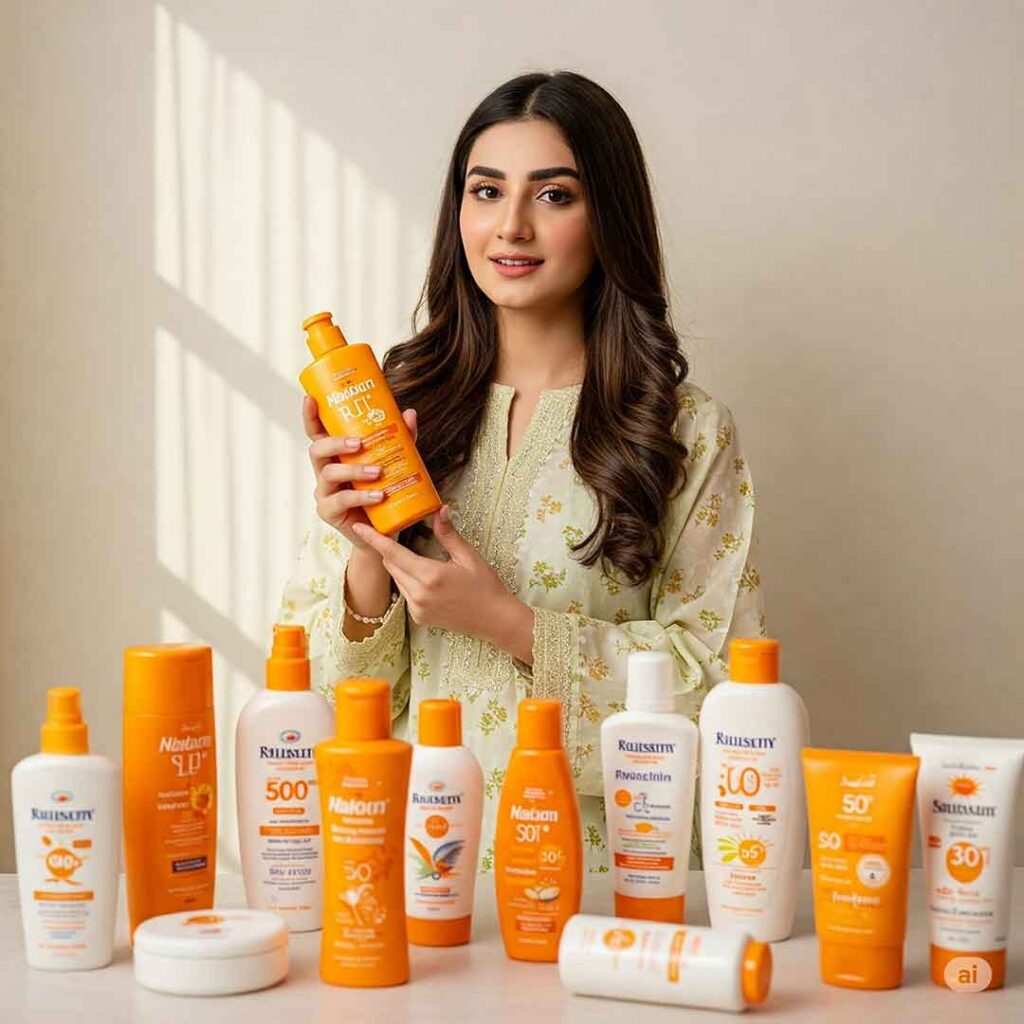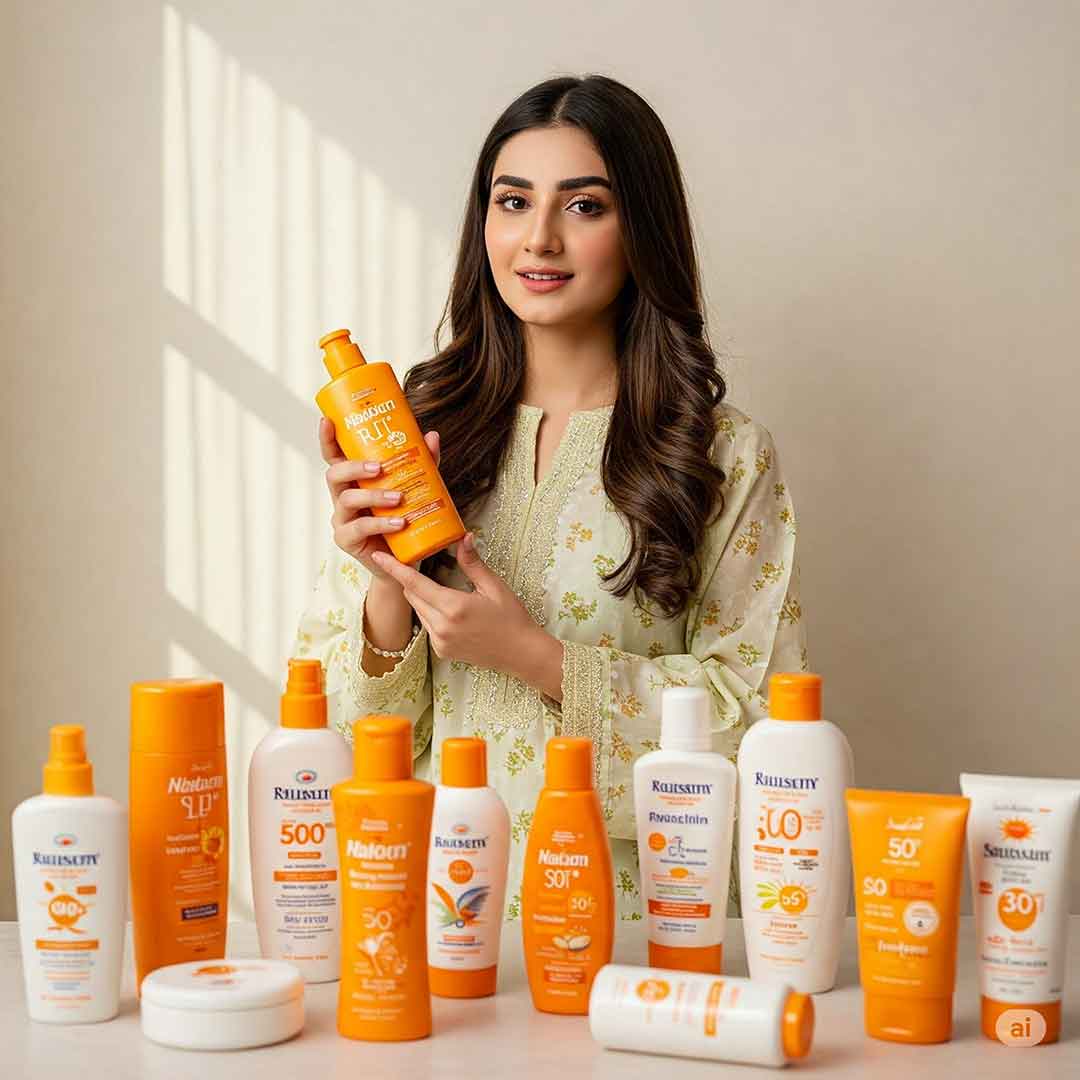☀️ What Is Sunscreen?
Sunscreen is a skincare product that protects your skin from the harmful effects of ultraviolet (UV) rays from the sun. It helps prevent sunburn, premature aging, and reduces the risk of skin cancer.
🧴 How Does Sunscreen Work?
Sunscreen contains active ingredients that either:
- Absorb UV radiation (chemical sunscreens),
- Reflect or scatter UV radiation (physical/mineral sunscreens).
🧪 Types of UV Radiation
| Type | Effect |
|---|---|
| UVA | Penetrates deep into the skin, causes aging and wrinkles. |
| UVB | Affects the surface of the skin, causes sunburn and skin cancer. |
A good sunscreen offers broad-spectrum protection (both UVA + UVB).
🧴 Types of Sunscreen
| Type | Ingredients | How it Works | Pros | Best For |
|---|---|---|---|---|
| Chemical | Oxybenzone, Avobenzone, Octinoxate, etc. | Absorbs UV rays and converts them to heat | Lightweight, blends easily | Daily wear, under makeup |
| Physical (Mineral) | Zinc oxide, Titanium dioxide | Reflects UV rays | Gentle, good for sensitive skin | Babies, sensitive skin, rosacea |
🧾 What Does SPF Mean?
SPF (Sun Protection Factor) measures how well sunscreen protects against UVB rays.
| SPF Level | Protection |
|---|---|
| 15 | ~93% UVB protection |
| 30 | ~97% |
| 50 | ~98% |
| 100 | ~99% |
Note: No sunscreen offers 100% protection.
✅ How to Apply Sunscreen
- Use enough: About a nickel-sized amount for the face; 1 ounce (a shot glass full) for the whole body.
- Apply 15-30 minutes before sun exposure.
- Reapply every 2 hours — more often if swimming or sweating.
- Apply even on cloudy days — up to 80% of UV rays penetrate clouds.
- Don’t forget: Ears, neck, back of hands, feet, and lips.
🌞 When to Use Sunscreen
- Every day, even indoors (UVA can penetrate windows).
- More critical from 10 a.m. to 4 p.m. when the sun is strongest.
- Year-round, even in winter and cloudy weather.
🧴 Choosing the Right Sunscreen
- For oily/acne-prone skin: Gel-based, non-comedogenic, matte-finish sunscreens.
- For dry skin: Cream-based with added moisturizers.
- For sensitive skin: Fragrance-free, physical sunscreens with zinc oxide or titanium dioxide.
- For children: Gentle, mineral sunscreens with SPF 30 or higher.
- Water activities: Use water-resistant sunscreen (lasts 40–80 minutes in water).
⚠️ Common Sunscreen Mistakes
- Applying too little.
- Not reapplying.
- Missing spots (ears, scalp, lips).
- Relying only on SPF in makeup.
- Using expired sunscreen.
🌿 Optional Add-ons in Sunscreen
Some sunscreens also contain:
- Antioxidants (Vitamin C, E): Help fight free radicals.
- Niacinamide: Soothes skin and improves texture.
- Tinted formulas: Help blend with skin tone and reduce white cast.




